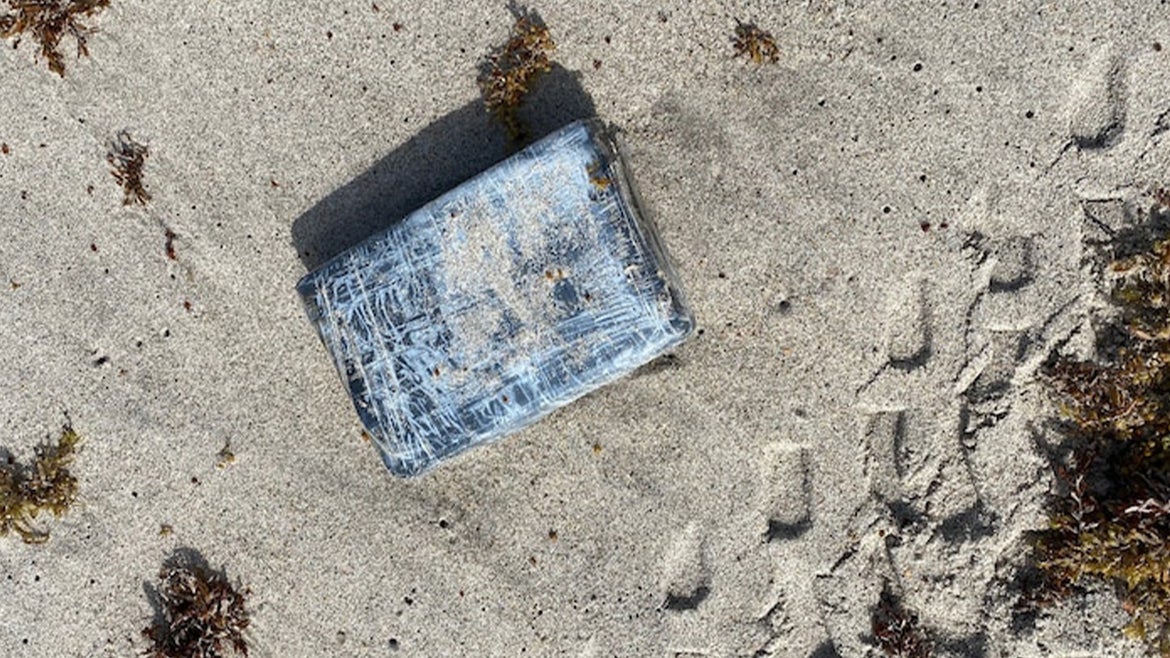The drugs were transported to a secure location and turned over to Homeland Security Investigations.
A wildlife manager searching for sea turtles at Florida’s Cape Canaveral Space Station stumbled upon something completely unexpected: $1.2 million worth of cocaine, authorities said.
Angy Chambers, 45th Civilian Engineer Squadron wildlife manager, was patrolling the beach and performing a turtle nesting survey May 19 when she noticed a small “package wrapped tightly in plastic and tape” and said she “thought it could be drugs," Space Launch Delta 45 said in a news release.
Chambers said she immediately contacted the 45th Security Forces Squadron (SFS) with Space Force. As she waited for them to arrive she said she “drove a little further and found another package and then another.” “At that point, I called the SFS back and suggested they bring their Utility Terrain Vehicle (UTV), as I counted at least 18 packages,” the release said.
Once officials arrived they secured the scene and collected the contraband, 45th SFS Flight Sargeant Joseph Parker said. Defenders from the 45th Security Forces Squadron seized nearly 30 kilograms of cocaine.The Brevard County Sheriff’s Office narcotics agent performed a field test on one of the packages and confirmed that it was cocaine, Parker said, CBS News reported.
Parker said all 24 packages were documented and placed them in evidence bags then were transported to a secure location and turned over to Homeland Security Investigations, the investigative arm of the U.S. Department of Homeland Security,
Special Agent David Castro said it had not been determined where the drugs came from but said “oftentimes maritime drug traffickers will transport bulk shipments of controlled substances in bales consisting of 25 ‘bricks’ or ‘kilograms of drugs,” CBS reported.
“Sometimes the bale wrapping is destroyed during transit cause bricks to be lost at sea and eventually recovered on the coastline of the United States,” Castro said.
Officials said intelligence at the scene was collected, unique marking on the packages, photographs, the weight of drugs, was also shared with the El Paso Intelligence Center (EPIC) that serves as a repository for abandoned drugs discovered in the United States, the release said.
Parker thanked Chambers for her vigilance, and for the team effort that will prevent the drugs from reaching the streets.
"We take pride in protecting our base and the surrounding community," said Parker. "There is also a higher level of job satisfaction knowing that these drugs will not make it into our community.”
The origin of the cocaine is under investigation, officials said.






